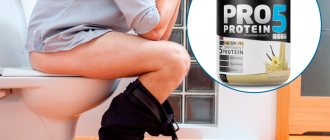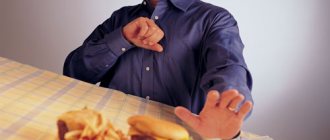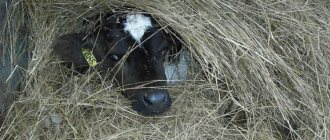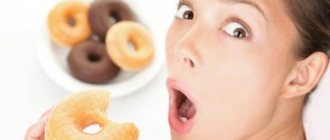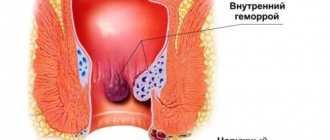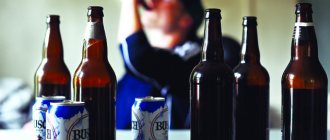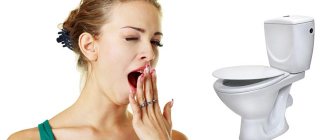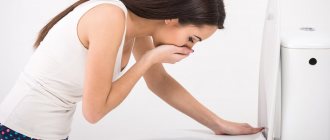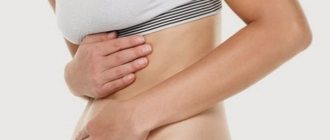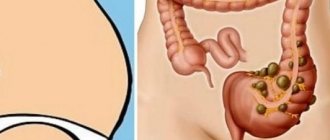The digestive system works much faster if there is overeating and drinking too much liquid. In view of this, it is best to beware of excesses in food and try not to overeat. If this cannot be done, the occurrence of diarrhea is a fairly common result of gluttony. Diarrhea is usually called a human condition in which a problem with extremely rapid bowel movements occurs more than three times a day. Such conditions are also characterized by the release of so-called loose stools. Diarrhea from overeating can take acute and chronic forms. To eliminate this condition, it is important to be able to correctly understand the reasons that caused it.
Types of diarrhea
Watery. The watery structure of stool indicates a bacterial, viral or toxic lesion. At the initial stages, no other symptoms appear, but as it develops, an allergic reaction to food, jumps in blood pressure (both down and up), dysbacteriosis, lack of vitamins and stress instability occur. If it is watery, it is forbidden to eat sweet, dairy and salty foods. You should not eat vegetables and fruits raw.
Bloody. This species is characterized by the presence of bloody clots in the feces. The cause may be infection with various types of pathogenic microorganisms, as well as the presence of serous diseases.
Based on the mechanism of development, diarrhea after eating can be of the following types:
- the invasive type develops against the background of infection of the gastrointestinal tract;
- osmotic diarrhea occurs due to enzymatic deficiency (the mechanism of water absorption by the intestines is disrupted);
- motor – appears against the background of severe intoxication of the body (intestinal walls contract too intensely);
- secretory - indicates inflammatory processes in which an excessive amount of mucous exudate and fluid is produced in the intestines.
If you do not seek qualified help in a timely manner, any type of diarrhea becomes chronic.
Methods for treating diarrhea
The selection of medications depends on what pathology provokes diarrhea immediately or several hours after eating. To restore the normal functioning of the gastrointestinal tract, a whole range of medications is required. The patient needs:
- Rehydration drugs . If a child or adult has diarrhea after eating sweets, due to infection or poisoning, rapid dehydration of the body is possible. To restore normal fluid levels in tissues, Regidron and Gastrolit are prescribed.
- Enterosorbents . When a poisoned patient begins to have diarrhea immediately after eating, sorbents are indispensable. Activated carbon, Smecta, Enterosgel are prescribed for toxic damage that has developed due to overeating, allergies, liver dysfunction, and infection.
- Probiotics . If diarrhea after eating appears due to dysbiosis, gastroenterologists must prescribe enterobiotics. Baktistatin, Baktisubtil, Bifiform, Enterol help stabilize the balance of microflora.
- Antimicrobial and antibacterial agents . Prescription of such medications is required when diarrhea occurs immediately after eating due to a bacterial infection. Patients are prescribed intestinal antiseptics: Nifuroxazide, Fthalazol. In especially severe cases, antibiotics are taken: Levomycetin, Cefazolin.
- Preparations for consolidation of stool . When a patient develops diarrhea from overeating, it is possible to take medications that reduce intestinal motility: Immodium, Loperamide.
- Sedative drugs . For nervous diarrhea, the doctor may prescribe sedatives: Valerian extract, Persen, Sedavit.
Important! If the cause of frequent diarrhea is infection or poisoning, you should not take stool-hardening medications. The use of any medications should be started only after consulting a doctor.
Causes of occurrence in adults and children
Diarrhea can occur at any age, even immediately after birth. Diarrhea after eating occurs due to increased bowel activity. This condition develops for a variety of reasons - both ordinary stress and serious illnesses.
Poisoning and infection most often occur in childhood, since due to their young age the child is not able to observe the rules of hygiene and distinguish fresh foods from spoiled ones.
Food poisoning
Food poisoning is possible due to spoilage and poor quality. Poisoning also occurs against the background of infection by bacteria, which, after entering the body, quickly multiply and release waste products that are localized in the blood fluid. Pathogens penetrate through dirty hands, which a person uses to eat or prepare food that has not undergone heat treatment.
Food poisoning is accompanied by the following specific symptoms:
- fever;
- chronic fatigue;
- headache;
- increased sweat production.
When poisoning reaches an advanced stage, more severe symptoms occur:
- a sharp decrease in blood pressure;
- increased heart rate and pulse;
- blood is found in feces and vomit;
- severe pain in the abdominal area;
- the patient begins to delirium.
Pancreatitis
With pancreatitis, the pancreas becomes inflamed, after which it stops producing enough of the required amount of enzymes. Against this background, carbohydrates, proteins and fats are not broken down, which is why peristalsis accelerates. Diarrhea occurs approximately 30-90 minutes after eating.
Feces are characterized by an unpleasant pungent odor, mushy consistency, and a gray tint. The peculiarity is the presence of fatty particles. Symptoms: girdling pain in the upper abdomen, flatulence.
Irritable bowel syndrome
This disease is characterized by a psychosomatic cause - stress, anxiety, quarrels, heightened emotions, etc. Due to disorders in the nervous system, the intestines do not function properly. But there may be other causes of irritable bowel syndrome: lack of exercise, PMS, etc.
- mucous structure of feces;
- Symptoms appear exclusively during wakefulness.
Acute intestinal infections
Infection with bacteria and viruses of various etiologies through food and water. Against this background, inflammatory processes occur, the mucous membranes are damaged, peristalsis accelerates and the absorption process is disrupted. Special features:
- diarrhea occurs after every meal;
- the presence of purulent and bloody exudate;
- severe pain syndrome.
Dysbacteriosis
With dysbacteriosis, the microflora in the gastrointestinal tract is disrupted. Most often it occurs while taking certain groups of drugs and with poor diet. How to recognize:
- frequent change from diarrhea to constipation;
- unpleasant odor of feces and from the oral cavity.
Enteritis
This disease includes a series of inflammatory processes in the mucous membrane of the small intestine. It appears as follows:
- increased body temperature;
- headache;
- nausea.
Feature – symptoms worsen after 12 noon. This is a period of active work of the digestive system.
Colitis
With colitis, the large intestine is affected, as a result of which food is not digested, and carbohydrates, fats and proteins are absorbed very poorly. Specific symptoms:
- immediately after eating there is pain in the abdomen;
- there is blood or pus in the stool;
- liquid structure.
Helminthiasis
When worms enter the body, the gastrointestinal tract organs cease to function normally. This is due to the fact that helminths eat all the beneficial substances. Additional signs:
- lethargy;
- itching near the anus and inside the anus;
- an irresistible desire to eat sweets;
- salivation during sleep;
- teeth grinding at night;
- peeling of the skin.
Other reasons
Also, diarrhea immediately after eating occurs for the following reasons:
- Diseases of the gallbladder and liver disrupt the digestion process, as fats are not broken down. Specific signs are yellowness of the skin and whites of the eyes, darkening of the urine, and white stool.
- Food allergies, in other words – intestinal asthma. After consuming foods to which the body is hypersensitive, diarrhea occurs after eating, which is accompanied by a skin rash.
- Diabetes mellitus and thyroid disorders.
- Enzyme deficiency occurs due to a disruption in the process of their synthesis.
- Taking certain groups of drugs.
Causes of upset stool after eating
Diarrhea after eating food is considered functional. Functional diarrhea is an intestinal disease manifested by frequent bowel movements. Food moves at a faster speed and is not completely digested.
Loose stool in an adult that occurs after eating is a consequence of eating low-quality or improperly processed food. In addition to the obvious reason, other factors are also mentioned:
- Constant emotional stress contributes to the development of irritable bowel syndrome. When the disease occurs, the functioning of the organ is impaired.
- When taking antibacterial drugs, the intestinal microflora is disrupted, making it difficult to digest food.
- In people with chronic pathologies of the liver and other organs of the digestive system, overeating is fraught with stool disorders.
- Unwashed plant foods consumed by humans can introduce pathogens into the body, leading to intestinal infections.
- Individual intolerance or an allergic reaction may manifest itself in the form of diarrhea.
- Hormonal imbalance causes stool upset after every meal.
Often, after a fatty meal, a person experiences stool upset. The body's reaction may indicate inflammation of the pancreas, liver disease and gall bladder.
Causes of diarrhea after eating in children
Children, like adults, sometimes experience upset bowel movements after eating. The reasons are:
- Malabsorption in the intestine;
- Infectious diseases;
- Lactose intolerance in a child.
The reasons can be determined by the color of the stool, consistency and smell. Specimens of pus and blood often indicate infection, while black stools indicate bleeding. Diarrhea in children often occurs after eating sweets. Children periodically suffer from intestinal upset from overeating sweets and confectionery. An adult should monitor the child's nutrition to prevent symptoms and more serious problems, including dehydration due to diarrhea.
Associated symptoms
Concomitant symptoms of diarrhea after eating depend on the cause of its occurrence, but there are also general symptoms that indicate a pathological etiology of origin:
- weakness;
- heartburn;
- nausea and sometimes vomiting;
- belching (may be sour or rotten-tasting);
- pain in the stomach and head;
- dizziness;
- feeling of heaviness and bloating;
- decrease or, conversely, increase in appetite.
Water regime for diarrhea
Dehydration is the most serious complication that can cause diarrhea after eating in an adult. When diarrhea occurs, you need to use solutions that will help stabilize the fluid level.
Can be taken:
- Regidron . Contains glucose and potassium, which stabilize the functioning of the heart and brain.
- Trihydrosol . Increases potassium levels in the body and restores kidney function.
- Gastrolit . In addition to salts and glucose, the drug contains chamomile extract, which has anti-inflammatory properties.
In this case, you need to observe an enhanced drinking regime: drink compotes, tea, herbal decoctions, mineral water. If a healthy person needs to drink at least two liters of water per day, then a patient suffering from diarrhea needs to replenish the lost fluid as quickly as possible - drink the same amount as it comes out.
When persistent diarrhea is accompanied by vomiting, you need to drink rehydration solutions a little at a time, a tablespoon every 10 minutes. If you have lost a lot of fluid and you cannot take the medicine, it is best to seek medical help. In a hospital setting, a drip infusion of rehydration solutions is performed.
Why is diarrhea immediately after eating dangerous?
Diarrhea washes away minerals and trace elements, so the following problems arise:
- bowel irritation;
- hypovolemia;
- pathological disorder of microflora;
- anal fissures and subsequently hemorrhoids;
- ulcers and fistulas in the anus and rectum;
- hidden hunger syndrome, which leads to unnatural thinness (anorexia);
- diaper rash in the perianal folds;
- infection of the body;
- dehydration leading to death.
Traditional methods
Recipe 1
Chop the pomegranate peel and pour 2 cups of boiling water over it. The decoction of pomegranate peels should be infused for at least 20 minutes. The product should be taken before each meal, 1 tbsp. spoon.
Recipe 2
Rice water is a proven remedy for diarrhea. For this purpose, the liquid that remains after cooking the cereal is used. Before sitting down at the dinner table, drink half a glass of the broth.
Recipe 3
Chronic diarrhea can be cured with the help of a healing blueberry decoction. Pour 2 tbsp. spoons of fresh berries with a glass of boiling water and leave for 15 minutes. To get rid of constant bouts of diarrhea, it can be used instead of your usual tea.
Recipe 4
Prolonged diarrhea can be cured with a decoction of oak bark, which has an astringent effect. Pour 400 ml of water into a container and add a teaspoon of crushed bark to it. The mixture should be simmered over low heat for 15 minutes. It is advisable to take 1 tbsp of the decoction before meals. spoon 3 times a day.
Recipe 5
You can cope with the symptoms of diarrhea after eating by taking a decoction of peppermint. Place 3 tbsp in a thermos. spoons of crushed leaves of the plant and pour 500 ml of boiling water over them. You need to infuse the decoction for about 30 minutes. The finished decoction should be drunk 100 ml 3 times a day.
Intestinal disorders periodically overtake every person. Loose stools combined with high body temperature, abdominal pain, and vomiting are a sure sign of infection or acute inflammatory process. Diarrhea after eating is more likely to indicate nutritional errors. For example, excessive consumption of laxative spoiled and incompatible products. Chronic diarrhea, without reference to the menu, can be a sign of bear disease, low-grade inflammation in the digestive organs, or dysbiosis.
When should you see a doctor?
Few people go to the hospital with diarrhea, mistakenly believing that the problem can be resolved on their own. In fact, you need to contact a specialist in the following situations:
- with a frequency of bowel movements more than 5-7 times a day;
- if loose stools do not go away for a long time (5-7 days);
- watery and mucous structure;
- the presence of purulent and blood particles;
- increased body temperature;
- lack of results after taking medications;
- nausea and vomiting.
Development of diarrhea
Diarrhea in most cases develops according to this scenario: first, there is a disruption in the release of water and salts into the intestinal cavity, then the dynamics of intestinal motility accelerate, accompanied by a disruption in the process of absorption of digested food from the intestinal cavity. These factors provoke disruption of the digestion process. In some cases, irritable bowel syndrome with diarrhea may develop.
The most common causes of diarrhea include chronic diseases of the gastrointestinal tract, acute intestinal infections, and intestinal dysbiosis.
Diagnostics and necessary tests
During the initial visit to the clinic, the therapist collects anamnesis. That is, he asks the patient about accompanying symptoms, the nature of diarrhea, past and present diseases. The doctor visually feels the abdominal area, measures the pulse rate and blood pressure. Next he will refer you for diagnostic measures:
- Blood sampling for a general examination, which will reveal hormonal imbalance and the inflammatory process.
- Submission of stool for laboratory examination for the level of leukocytes, mucus and other inclusions. The epithelium, fatty acids, the presence of helminths, viruses, and bacteria are studied.
If it is discovered that the cause lies in serious diseases, an additional instrumental examination and blood collection for biochemical analysis are carried out.
Diagnosis
Loose stools after eating are a dangerous symptom, since a person loses a lot of fluid and may become dehydrated.
In addition, with diarrhea, many useful substances leave the body and they cannot be absorbed normally by the intestines.
Frequent diarrhea after eating may indicate serious abnormalities that need to be diagnosed in order to provide quality treatment.
The following analyzes are used for this:
- A doctor examines him and asks about the patient’s symptoms. Doctors take pulse and blood pressure measurements, find out the patient’s habits and lifestyle, and approximate diet.
- The next step is collecting samples. To do this, the patient's stool is taken and blood is given for testing.
- If there is a need, the doctor can use an instrumental examination of the gastrointestinal tract and intestinal mucosa. To do this, a gastroscopy is performed, which will allow you to see the organs and possibly identify tumors, inflammation and other abnormalities.
After an examination, doctors can determine the causes of diarrhea.
Based on the causes in adults or children, treatment is prescribed, which may include the use of medications, dietary adjustments, or taking traditional medicine.
Treatment of single and chronic diarrhea
Diarrhea can develop into a chronic stage, when a person suffers from diarrhea constantly. In this case, the therapy is slightly different from the methods of treating single manifestations of loose stools.
Single diarrhea:
- taking sorbents;
- a gentle diet for a week;
- hydrating preparations (restore water and salt balance).
Chronic form:
- sorbents and hydrating agents;
- antidiarrheal drugs;
- sedative medications;
- anthelmintic drugs;
- probiotics;
- strict diet and water intake.
Medicines
Drug therapy is mandatory - it must be aimed at achieving several goals:
- To normalize the water-salt balance, hydrating agents – Regidron – are prescribed.
- To remove toxic deposits and other harmful substances from the body, sorbents are needed: Enterosgel, activated carbon.
- Antidiarrheal medications will help stop loose stools: Imodium, Lopedium.
- If the cause lies in a bacterial infection, antibiotics are prescribed. The specific drug is selected primarily by the attending physician.
- In case of helminthic infection, antiparasitic therapy will be needed: Dekaris, Pirantel.
- To restore the microflora, you will have to take enzyme medications: Bifiform, Linex.
- Since prolonged diarrhea often disrupts the psycho-emotional background, sedatives are prescribed: Novo-Passit, Lotusonic, motherwort or valerian tincture. This group is also needed for neurotic type of diarrhea.
Nutrition
If you experience diarrhea after eating, you should immediately think about changing your diet. Use a menu that will reduce the burden on the gastrointestinal system. Basic adjustment rules:
- You should eat food in small portions.
- The interval between doses is 4 hours.
- Don't eat solid foods. It should be semi-liquid.
- Be sure to keep food warm.
- Avoid fried, fatty, salty, sweet, spicy, smoked foods. Remove seasonings completely; they irritate the intestinal mucosa.
- Avoid eating foods that cause gas and fermentation. These are cabbage, radishes, beans, confectionery and butter products. Eat apples only when baked.
- After eating, drink a cup of strong tea.
- Replace bread with crackers.
Water mode
If you have diarrhea, you must stay hydrated. To avoid dehydration, you should drink plenty of fluids. If you have not found any medications at home that will stop diarrhea, use the following recipe. The solution is taken after using the toilet. Heat the water (up to 40°), add salt (a teaspoon), 0.5 tsp. soda and 3 tsp. Sahara. Mix and take 200 ml.
In addition, you can drink mineral water - Narzan, Borjomi, Essentuki. Consumption of tea, jelly or decoctions of medicinal herbs is allowed. The minimum amount of water is 2-3 liters.
Prohibited drinks:
- sparkling sweet water;
- alcohol;
- kvass;
- juices (grape, tomato, pineapple, peach);
- cocoa, coffee, milk and green tea.
Folk remedies
To treat bouts of diarrhea, you don't have to take only medications. Additionally, you can use folk recipes:
- Boil rice in plenty of water. Pour the remaining liquid into a glass. Add 10 grams of chopped ginger. Take during regular attacks of diarrhea.
- A decoction of oak bark and St. John's wort. 2 tsp. Brew each component in 200 ml of “steep” boiling water. Time to insist. Strain. Dosage: 50 ml three times a day.
- Blueberry jelly. Rub fresh berries through a fine sieve. Pour in 400 ml of water. Put on fire and cook for 20 minutes. Then add a tablespoon of starch. Mix thoroughly so that no lumps form. Cook for another 3 minutes and cool. Drink 5 times a day, 0.5 cups.
- Bird cherry. Pour a glass of “steep” boiling water into a container, where you should first add a tablespoon of the dried component. Cook in a steam bath for no more than 20 minutes. After this, the broth is cooled and filtered. Take 1/4 cup 3 times a day.
- Finely chop the pomegranate peel. Place it in boiling water (400 ml). Leave for 25 minutes. Take a tablespoon on an empty stomach.
Treatment
When treating loose stools, the main methods should be aimed at eliminating its cause. There are no big problems with one-time diarrhea. It is enough to take some absorbent agent in the form of Activated Carbon or Smecta. A few days of using these medications and following a diet that includes broth and plenty of fluids usually produces positive results.
In addition, it is necessary to use Regidron, which will restore the level of electrolytes.
It is better not to try to treat frequent diarrhea after eating on your own. After examinations and based on all the tests performed, the doctor must make an accurate diagnosis and, based on this, prescribe a specific treatment and diet.
If there are harmful bacteria in the intestines, an urgent one-time cleansing enema is necessary.
It is important to remember that any digestive disorder in an adult or child that lasts more than a day should be a reason for a visit to the doctor. If diarrhea is accompanied by abdominal pain, fever and dry throat, you should immediately go to the hospital. It often happens that such symptoms accompany a serious and intractable illness.
Digestive disorders can occur for various reasons, and one of them is eating sweets. Although for many such products are a favorite treat, it is quite possible that later you will have to solve such a problem as diarrhea after sweets. Such reactions of the body can be isolated or become permanent, which requires a medical examination. There is a possibility of developing pathological processes.
Preventive measures
A large percentage of the likelihood of diarrhea increases in the summer. To prevent this from happening, you should follow the following preventive rules:
- Wash your hands as often as possible before eating. Also after visiting any crowded places. If it is not possible to use soap, purchase special antibacterial agents (sprayers).
- Wash food under water. It is advisable to pour boiling water over them.
- Don't buy ready-made meals sold on the street. If you come to the beach, refrain from buying food (pies, corn, etc.).
- Store perishable foods strictly in the refrigerator.
- Keep an eye on the expiration date.
- Before placing store-bought eggs in the refrigerator, they must be washed to remove any remaining chicken feces.
- When preparing food, make sure it is cooked or cooked through.
- Observe the proximity of products. Do not place raw foods next to prepared foods, especially those with mayonnaise or sour cream.
- Don't drink tap water. Consume quality liquid.
- Wash kitchen utensils under hot water using detergents. Also rinse thoroughly under running water.
If you notice diarrhea immediately after eating, which does not go away for a long time, go to the clinic immediately. This will allow you to timely identify the cause and quickly get rid of the problem. Modern medicine will allow you to do this in the shortest possible time.
The consequences of overeating are a difficult test for the digestive system, especially on holidays and special occasions, when the table is replete with delicacies and the mood is favorable to a festive feast.
As soon as the “belly celebration” ends, the next day after overeating, the mood changes, and some people feel bloating, heartburn, gas, diarrhea and a terrible hangover. Is there any treatment for overeating that will give relief to the stomach?
Treatment for persistent diarrhea
Constant diarrhea, the causes of which are hidden in the patient’s lifestyle (an abundance of fatty and fried foods, the predominance of meat products in the diet, low physical activity, frequent stress), is treated, first of all, by correcting the patient’s behavior and eating habits.
Patients with chronic diarrhea need to include in their diet foods that reduce fermentation processes and gas formation.
The basis of the diet is steamed dishes with a puree-like consistency. To stop diarrhea, it is recommended to take rice water or liquid rice porridge, because this cereal has a strengthening effect.
Flatulence after overeating
This malaise is associated with the accumulation of gas in the stomach and intestines. Typically, symptoms of overeating are caused by eating sauerkraut with meat, onions, legumes and mayonnaise, as well as when we talk and laugh while eating, because in this case it is easy to swallow excess air. But gas is also a signal of digestive disorders, such as limited production of enzymes by the pancreas caused by overeating and the associated slow functioning of this digestive organ.
How to help yourself with flatulence?
The best way to restore the body is folk treatment with peppermint, medicinal chamomile, crushed cumin and aloe root. Mix a tablespoon of healing ingredients with boiling water and cover with a lid for 10-15 minutes.
Some people prefer to drink natural yogurt, which also helps restore the intestines. In addition, you can use anti-overeating pills:
- Espumisan® is a medicine that eliminates the symptoms of increased gas formation caused by functional dyspepsia.
- Gastop® mantles are a drug used for functional bowel disorders.
Other pharmacological agents that help destroy gas bubbles in the stomach and/or intestines will also help restore the balance of natural gas in the intestines.
Chronic gastrointestinal diseases and diarrhea
Chronic diseases of the gastrointestinal tract can also cause diarrhea. Diarrhea can accompany ulcerative colitis, Crohn's disease, inflammation of the large and small intestines. Diarrhea occurs as a result of disruption of the absorption of nutrients from the intestinal cavity. Diseases of the pancreas and liver can also cause diarrhea.
If a patient experiences diarrhea after eating, the reasons in some cases are not related to the functioning of the digestive tract. Thus, this symptom may accompany acute appendicitis, hepatitis, emotional stress or overexertion, poisoning or overheating in the sun.
A lack of vitamins in the body can also cause bouts of diarrhea. In addition, stomach upsets may be a reaction to medications.
What to do after a hangover?
Excess alcohol in the body means not only headaches, but also stomach pain after overeating. The cause is a chemical reaction when alcohol is converted by the liver into acetaldehyde, which is very toxic to the human body. Among other things, alcohol toxins increase blood pressure and speed up heart rate. The effect of excess alcohol also causes increased acidity of the stomach, irritation of its mucous membrane and other painful sensations.
To neutralize stomach acid and acetaldehyde, you need to drink a lot - preferably mineral water, kefir, yogurt or tomato juice, which will replenish the body with potassium washed out with alcohol. The digestive system also needs to restore vitamin C, which is found in fruit juices, such as orange or grapefruit. To help your stomach digest alcohol components, snacks and low-fat broth are necessary.
Pharmacy remedies for treating hangover syndrome will help:
- Ibuprom® - a drug that reduces the sensitivity of receptors to chemical irritants in the digestive system.
- Aspirin® is a drug that thins and accelerates blood flow, and also has an anti-inflammatory and analgesic effect.
Diseases that cause diarrhea after eating
Many diseases and pathological processes in the body cause loose stools. Some pathologies require antibiotic therapy, others require surgical intervention. Pathologies that cause diarrhea:
- Disease of the thyroid gland (organic, functional);
- Acute intestinal infection;
- Enteritis, colitis, duodenitis;
- Helminthic diseases caused by helminths;
- Functional bowel disease;
- Inflammation of the pancreas;
- Malignant and benign formations in the gastrointestinal tract;
- Dysbacteriosis.
Irritable bowel syndrome
The phenomenon often occurs in the adult population. In case of illness, diarrhea is caused by severe stress. The stool is loose and frequent. A person's stomach hurts and twists. There are many causes of the disease. Among the most likely, doctors identify:
- Lack of control by the brain over the functioning of the gastrointestinal tract.
- Strengthening intestinal motility.
- Poor nutrition. Diarrhea occurs in people from fatty foods and after spicy foods more often than in those who support a healthy diet.
Treatment consists of following a diet.
Dysbacteriosis
Dysbacteriosis can occur due to taking medications and poor nutrition. Manifests itself in the form of light-colored loose stools. Foam and pus are often found in the stool. The patient feels bloating in the abdomen, especially in the evening.
Pancreatitis
A lack of pancreatic enzymes provokes pain and diarrhea; proteins, fats and carbohydrates are not broken down, which provokes the intestines to increase peristalsis. Pain may not occur immediately, but 2 hours after eating.
Pancreatitis is a serious diagnosis. The pathology is dangerous to human life. It is necessary to diagnose the pathology in a timely manner and begin immediate treatment. It makes no sense to treat diarrhea if the cause is inflammation of the pancreas.
Disease pancreatitis
Enteritis
A group of inflammatory diseases of the small intestinal mucosa. Enteritis usually begins with diarrhea soon after eating. There is an increase in temperature, headache, and nausea.
Symptoms are more pronounced in the afternoon, when the digestive system is more active.
Colitis
Damage to the large intestine. With pathology, stool becomes liquefied and the temperature rises. After eating, abdominal pain and bloating are felt, the pain subsides after defecation. There is blood and pus in the patient's stool.
Food is poorly digested. Proteins, fats and carbohydrates are poorly absorbed.
Helminthiasis
Liquid bowel movements after eating are caused by the presence of parasites in the human body. Worms feed on vital substances necessary for the proper functioning of the gastrointestinal tract. Due to the loss of beneficial salts and minerals, liquid stool often occurs.
In addition to the main symptom, the patient experiences lethargy and weakness. Nausea occurs. There may be a cough that cannot be treated. Decreased immunity due to the presence of parasites leads to frequent colds.
In children, the disease is easily suspected if there are signs:
- Peeling skin, brittle nails;
- Increased drooling during sleep, grinding teeth;
- Itching in the anus;
- Eating large quantities of sweets.
Diarrhea after overeating
As a rule, the result of overeating can be diarrhea after fatty foods, when the stomach cannot digest the contents due to insufficient production of digestive enzymes. To dehydrate the digestive tract, you need to drink a lot of still mineral water, light tea, chamomile or mint decoction, as well as blackberry juice. In addition, you must follow a diet. On the first day, it is better to limit your diet to a few crackers, and in the next few days you can eat glutinous rice porridge, oatmeal, boiled carrots and vegetable broth.
Among the pharmaceutical drugs that restore the rhythm of bowel movements, the following drugs are recommended:
- Activated carbon is a treatment that has antidiarrheal and detoxification effects. At one time you need to take 5-7 tablets with a body weight of 75-80 kg.
- Biosporin® is a drug with high antagonistic activity against pathogenic microorganisms.
The following can also restore intestinal microflora and relieve pain after overeating: Polysorb® mp , Regidron® , Smecta® , etc.
Diagnostics
When should you go to the hospital? A situation where diarrhea lasts longer than 2 days requires consulting a doctor.
The initial diagnosis is carried out by a therapist. The patient is questioned about complaints and chronic diseases, then the doctor palpates the abdomen and sends for tests. At the same stage, if necessary, consultations with specialized specialists are recommended: a gastroenterologist, an infectious disease specialist, an allergist, and less often than others.
Analyzes:
- general blood composition;
- biochemical blood parameters;
- blood for allergies;
- scatological and bacteriological feces;
- feces for occult blood and oviworm.
Research:
- Ultrasound of the abdominal cavity;
- gastroduodenoscopy;
- colonoscopy.
We determine the cause based on additional symptoms
For a doctor, the complaint “I eat and immediately have diarrhea” is not informative. To understand the causes of the disorder, it is necessary to take into account the cumulative symptoms:
- stool consistency (homogeneity, presence of pathological impurities, foam, undigested food, thickness);
- color of stool (yellow, green, white, brown, black, interspersed);
- smell (putrid, pungent, acetone, ordinary);
- presence of temperature;
- daily diet;
- the presence of chronic gastrointestinal diseases;
- similar symptoms in family members.
Thus, diarrhea with foam, greens in the stool, and an unpleasant odor indicates bacterial damage to the intestines. Normal-colored, watery stool with undigested food is often a sign of allergies, enzyme deficiency, dysbiosis, or irritable bowel syndrome. An elevated body temperature indicates infection or inflammation in the gastrointestinal tract. Rich yellow stools are characteristic of liver and gallbladder damage. Black stool is the most dangerous and may indicate internal bleeding.
Vomiting after overeating
The gag reflex is another sign of overeating, when the body is oversaturated with fatty, spicy or poor quality food. First of all, it is necessary to completely empty the stomach of the food mass, and for this you need to drink a lot of liquid, for example, warm tea, fennel infusion, or swallow a tablespoon of dry marjoram.
You should definitely take something from the medicinal arsenal, for example, Creon® , Mezim® or Festal® . Activated carbon can also be used at the rate of one tablet per 10 kg of body weight.
What to do if diarrhea starts after eating sweets?
Initially, you need to make sure that diarrhea appears precisely after sweets, because it is likely that this phenomenon is preceded by other reasons. You can verify this yourself by analyzing your diet, the frequency of the urge to defecate, as well as accompanying symptoms. If diarrhea occurs rarely and there have not been similar disorders for a long time, then to normalize the condition you can do the following:
- Stop eating until the condition normalizes. You can still stick to a diet that excludes “harmful” foods (fried, fatty, sweet, sausages, etc.) a day after the diarrhea stops.
- Drink more water. This will help prevent dehydration and normalize the water-salt balance. It’s good if you have mineral water without gases.
- Accept adsorbents. These are substances that “capture” and remove various compounds along with feces that can cause diarrhea. They may be different depending on the main active ingredient. Popular ones include Smecta, Activated Carbon, Polysorb, Eterosgel. There are other drugs, but their effect is sufficient if diarrhea is not caused by serious poisoning or pathological processes in the gastrointestinal tract.
Heartburn after overeating
The main cause of heartburn is overeating, which causes pressure on the stomach from the diaphragm. As a rule, overweight and obese people suffer from similar symptoms, and similar problems arise when smoking, since nicotine stimulates the release of hydrochloric acid in the stomach.
The easiest way to get rid of heartburn is to drink a glass of water with a teaspoon of baking soda and lie on your left side. In this position, the stomach is below the esophagus, and the food contents do not regress. Heartburn will stop bothering you if a person gives up tight-fitting clothes and figure-shaping belts. Also, during a heartburn attack, you should limit your consumption of coffee and alcohol.
Pharmaceutical drugs: Rennie® , Ranigast® and so on.
Types of diarrhea that occurs immediately after eating
Depending on the symptoms, 2 types of diarrhea can be distinguished:
- there are blood clots in loose stools;
- stool has the consistency of water.
The appearance of blood may be associated with the formation of ulcers in the stomach. This is a fairly serious symptom that requires investigation. For diagnosis, the patient must undergo rectomanoscopy.
Loose stools indicate damage to the intestines by pathogenic microorganisms.
If left untreated, the disease becomes chronic. Diarrhea after eating can be a consequence of:
- lack of vitamins necessary to ensure the normal functioning of the digestive system;
- body reactions to taking certain drugs;
- due to severe stress.
What to do if you have frequent attacks?
The presented methods of dealing with intestinal problems are effective and proven, but they should be used only in extreme cases. If unpleasant symptoms recur, you should consult a doctor who will conduct a diagnostic examination to explain the cause of the discomfort.
Heartburn may indicate gastroesophageal reflux, and frequent bloating and excessive gas after eating may indicate pancreatic or liver failure. In such cases, it is necessary to apply special treatment and follow proper nutrition.
Take care of yourself and always be healthy!
The digestive system works much faster if there is overeating and drinking too much liquid. In view of this, it is best to beware of excesses in food and try not to overeat. If this cannot be done, the occurrence of diarrhea is a fairly common result of gluttony.
Diarrhea is usually called a human condition in which a problem with extremely rapid bowel movements occurs more than three times a day. Such conditions are also characterized by the release of so-called loose stools. Diarrhea from overeating can take acute and chronic forms. To eliminate this condition, it is important to be able to correctly understand the reasons that caused it.
Bloody diarrhea
If a patient has bloody diarrhea, then he needs to be hospitalized. The problem can be caused by microbes of different types, so treatment should be aimed at eliminating it with the help of antimicrobial drugs and antibiotics. Therapy can be carried out at home provided there are no complications or associated symptoms. Considering that many types of microbes are resistant to antibiotics, you can take drugs such as Metronizadol, Cotrimoxazole, Ofloxacin, Norfloxacin, Ciprofloxacin. Before use, be sure to carefully read the instructions or consult a specialist.
Hospitalization of the patient is necessary if bloody diarrhea is a sign of a serous disease. For children and older people, diarrhea can lead to a number of serious complications.
Why does diarrhea occur from overeating?
Very often, diarrhea from overeating occurs immediately after stopping food intake. The reasons for what is happening can be very different. Among the most common are the effects of parasites, as well as various viruses, infections and harmful bacteria.
In itself, diarrhea from excessive gluttony is a symptom that characterizes one of the probable types of digestive system disorders. At the same time, the intestines are emptied, stool disturbance occurs, and its liquid component appears. As for children, diarrhea is the second most common reason for seeking help from specialists after fever.
Diet for diarrhea, important symptoms of the onset of diseases
If diarrhea has become a frequent occurrence after eating, then the reasons should be sought not only in disorders of the digestive tract or intestines.
Overheating in the sun, emotional breakdowns, stress, tension, lack of vitamins, allergic reactions to taking certain medications can cause diarrhea.
Even if the causes of diarrhea are not only intestinal dysfunction, it is still important to decide what foods to eat and what to drink.
In any case, in such situations, nutrition should be gentle; you should not burden the digestive system.
The diet for diarrhea is formed against the background of drinking plenty of fluids. This is necessary to compensate for water loss due to diarrhea.
It is recommended to drink alkaline mineral water, but it is better to choose a drink without gas.
You should definitely avoid low-alcohol drinks and energy drinks, as they remove beneficial salts and microelements from the body. As a result, intestinal dysfunction occurs.
For diarrhea, it is recommended to eat healthy foods such as rice, boiled eggs, bananas and completely avoid fatty foods.
If you have an upset stomach, you should eat no earlier than two to three hours later. Cook rice for at least 40 minutes over low heat, without adding salt or spices.
Among drinks, strong tea without sugar has a strengthening effect. Hard-boiled eggs, along with fresh bananas, have a healing effect against diarrhea.
The most effective product for stopping diarrhea may be the paste that is obtained by cooking rice.
To determine the cause of diarrhea after eating, it is necessary to notice important symptoms.
For example, diarrhea caused by intestinal infections may be accompanied by watery or bloody stools.
Deviations are caused by viruses and bacteria, which release toxic substances in the first case.
And with bloody inclusions in the stool, which are characteristic of dysentery and salmonellosis, bacteria destroy the mucous membrane of the gastrointestinal tract, penetrating through it onto the intestinal walls.
In such cases, the necessary step is to use antibiotics and seek medical help.
Dry skin, tongue, mouth, anemia and significant weight loss accompanied by diarrhea after eating are characteristic of pancreatitis.
When your stomach hurts and diarrhea after eating certain foods is characterized by black stools with blood, you can suspect internal bleeding, which occurs with ulcers of the stomach and duodenum.
All signs of fever, abdominal pain, nausea and vomiting are grounds for immediate contact with a specialist.
You should not miss the symptoms that indicate the onset of serious diseases of the stomach and intestines.
Video:
How to treat loose stools from overeating?
There are a variety of ways to treat diarrhea from overeating. A number of therapeutic measures can be prescribed to the patient, regardless of what type of diarrhea occurs. It is assumed that a diet will be prescribed and its full compliance by the patient, as well as the use of drugs that have astringent effects. Ultimately, everything is determined by the doctor’s prescriptions and the severity of the patient’s condition.
Treatment using official medicine methods
Treatment with official medical methods involves the use of drugs that have enveloping, adsorption properties, and have high-quality astringent properties. An antibacterial range of drugs qualitatively restores the full state of the gastrointestinal cavity, and also restores the intestinal microflora. In the event that the appearance of diarrhea is associated with exposure to harmful bacteria, the patient is prescribed drugs of the antimicrobial group, from among the first and second generation quinolones (Norfloxacin, Nolitsin and others).
Also in such cases, antiseptics and sulfonamides are recommended for use, and those medications that can qualitatively restore the balance of intestinal microflora (Acidolac, Bactistatin, etc.) are also very popular.
As an alternative therapeutic method, patients are prescribed bacterial drugs, the period of general use of which can sometimes reach a duration of up to one calendar month.
The use of symptomatic drugs, which are capable of qualitatively eliminating the effects of neutral carboxylic acids, are well enveloping and knitting, also proves their effectiveness. These are Attapulgite, Gastrolit, Tannacomp.
Drugs that help improve intestinal motility are also used; their interaction with opioid receptors of the small intestine helps to cause a change in the nature of the epithelial cells, resulting in a decrease in the amount of secreted secretions and a decrease in the overall ability of absorption. The result is decreased intestinal motility.
Treatment of diarrhea from overeating with folk remedies
When treating diarrhea from overeating with traditional medicine, you should first of all worry about the subsequent prevention of dehydration of the patient’s entire body. To do this, you need to drink a lot of strong tea, both with moderate and mild severity of the disease. Sugar should not be added to tea; this is extremely important. You should also drink enough jelly and other liquids that contain little sugar. In more severe situations, it is recommended to use a solution with a high concentration of salt, or other means from the arsenal of modern medicine.
Drinks with significant sugar content should not be used. In such cases, the situation is fraught with the development of fermentation symptoms, which negatively affects the general condition of the whole organism.
You should only drink black tea, since green tea has strong laxative properties. The result in such cases can be achieved completely opposite to what is planned.
When consuming jelly, it is recommended to take it only very “starchy”. Preference is given to oat products that contain the addition of herbs, as well as various fruits and selected berries. They do not need to be eaten after the starch is cooked.
The salt solution is prepared from ordinary table salt with the addition of boiled water. Calculated doses must be selected individually in each individual case. Also, when making calculations, the age of the patient should be taken into account. For an adult, it will be enough to use two teaspoons per glass of boiled water. If the resulting solution turns out to be difficult to drink, the concentration of salt in it can be reduced by diluting it.
Diarrhea itself is quite dangerous, so traditional medicine must be used very carefully to neutralize it.
Prevention of diarrhea
It is necessary to consume semi-liquid cereals daily for diarrhea. They are cooked in water and boiled well.
Non-fatty types of meat are allowed on the menu, but it is advisable that it be well ground (ground) and steamed - steam cutlets. Fish in the diet should also be non-fatty varieties (for example, pollock or cod).
It is boiled or steamed. Steamed fish balls, meatballs or cutlets are the best.
Milk is allowed to be consumed in small doses and only when preparing any dish. For example, a few tablespoons of milk can be added to mashed potatoes or cooked porridge.
What foods can you eat if you have diarrhea if you have severe diarrhea? Kefir, yogurt and other fermented milk products are allowed within reasonable limits. They have a beneficial effect on microflora.
Tomatoes, carrots, beets, and squash are allowed in the diet. It is recommended to boil or steam vegetables and grind them.
Fruits include baked apples, persimmons, and bananas. During this period, fruit mousses and jellies are very useful.
https://youtu.be/rlWK5D5fzes
Wheat bread crackers or yesterday's bread, as well as boiled pasta, are allowed as flour products. It is forbidden to eat fresh bread, especially white bread.
It is recommended to drink at least two liters of liquid per day. It is allowed to drink compote, herbal teas, still water, jelly, decoctions (rice, bird cherry, etc.).
In cases of very severe diarrhea, the amount should increase in proportion to its loss in feces. Don't limit yourself, drink as much fluid as possible.
A misconception is the idea that if you drink less, then there will be less bowel movements.
If you have an upset stomach in the form of diarrhea, it is better not to eat anything at all during the first 24 hours, drink only strong sweet tea. Next, porridge (boiled) and puree-like mucous soups are added to the diet.
With each day the patient’s condition improves, the other above-mentioned food products are introduced into the menu. Of course, everyone decides for themselves what food to eat.
But sometimes it’s better to think about whether a few minutes of enjoying “yummy food” are worth the torment that follows.
Preventive measures to prevent diarrhea in adults include maintaining basic hygiene:
- washing hands before every meal;
- thorough washing of vegetables and fruits;
- proper heat treatment of vegetables, meat, fish, etc.;
- drinking clean drinking water;
- timely medical examination and timely examinations by relevant specialists.
Remember, self-treatment of diarrhea that lasts longer than 3 days can cause irreparable consequences to the body; consult your doctor for diagnosis.
https://youtu.be/3PN2wli4s4Q
We recommend reading
We recommend reading
How to prevent diarrhea from overeating?
Of course, in order to prevent diarrhea from overeating, you should observe abstinence in food. Fulfilling the requirements for determining the diet, following the instructions of well-known nutritionists will help solve the problem qualitatively. Also, when preparing food at home, it is important to adhere to the rules of sanitary and hygienic food processing and not to eat raw or expired foods. In addition, it is important to follow a series of simple yet important dietary guidelines.
- Food must be chewed thoroughly before swallowing. If food is not chewed enough, the process of wetting it with saliva is disrupted, digestion becomes difficult, which leads to the swallowing of excess air. This may cause pain in the abdomen, and changes in the motility of the stomach and intestines.
- You shouldn't rush while eating. About half an hour after the last meal, the body begins to feel full, so with a quick meal, during which you are doing something else, this feeling may occur much later. This way you can also get the effect of overeating. The result will be enzyme deficiency, disruption of normal intestinal motility, and the onset of diarrhea after eating.
- You should not eat before going to bed. It is known that all processes occurring in the human body are in strict accordance with biological rhythms. In the evening, the overall activity of the digestive system decreases, which leads to the retention of eaten food in various parts of the digestive tract. It is best to eat no later than three hours before meals, which is what most nutritionists recommend.
Traditional methods of treating diarrhea
Drug treatment to eliminate loose stools in an adult is prescribed by a doctor. But it is possible to alleviate the condition of a patient who suffers from diarrhea after eating at home. The following traditional medicines help stabilize the condition:
- Bird cherry decoction . Helps quickly restore water-salt balance in the body, reduces the frequency of bowel movements.
- Black peppercorns with starch . With the help of starch, you can fix the stool; within 2 hours after using this product, diarrhea stops.
- Chamomile tea . Has a disinfecting, anti-inflammatory, calming effect. Can be used for various gastrointestinal pathologies.
- Oak bark decoction . It can be used if your stomach hurts after eating and diarrhea does not stop for a long time. The product stimulates stool consolidation.
An important condition for stabilizing stools is also following a diet for diarrhea. Fatty, spicy and overly sweet foods are excluded from the patient's diet, especially if the patient has developed diarrhea from sweets. In the first days of the disease, it is recommended to follow a strict diet: drink a lot and eat only wheat crackers.
To prevent the occurrence of diarrhea after eating, it is necessary to follow preventive measures. You should wash your hands properly using soap, do not eat expired products, and undergo regular medical examinations.
Diet
If diarrhea appears immediately after eating in an adult or child, then it is necessary to use a gentle menu.
The goal of dietary adjustments is to reduce the stress on the digestive system, which will quickly eliminate this condition.
Adjustment of the day and nutrition consists of the following principles:
- You need to eat constantly; the recommended time interval between meals is 3-4 hours.
- All foods and dishes should be warm and semi-liquid in consistency.
- It is recommended to steam, boil or bake food only.
- Fatty foods and dishes, spicy and smoked, are removed from the diet. It is necessary to reduce preserved and salty foods to a minimum, all this provokes diarrhea after eating.
- Be sure to abstain from alcoholic beverages while treatment is being carried out.
- Ingredients are removed from the diet, which provoke fermentation in the stomach and lead to flatulence. Such foods include baked goods, cabbage, legumes, and peeled apples.
- To stop diarrhea, it is recommended to reduce the consumption of fruits; bananas, persimmons and baked apples are allowed.
- You need to drink a lot of water per day and the norm for adults is from 2 liters; for a child, the norm can be slightly reduced.
- For diarrhea, it is useful to drink mineral waters, which release gas. These include Borjomi, Essentuki and some others.
If diarrhea appears immediately after eating and does not go away for a long time, then it will be useful to fast for one day.
The next morning you can have rice porridge for breakfast, eat slimy soup for lunch, and get your fill of cottage cheese casserole in the evening. In between meals, you can consume wheat crackers and tea.
The diet should always be used. Adjusting your diet and daily routine allows you to recover faster and you need to use proper nutrition, regardless of the cause of diarrhea after eating.
In what cases should you immediately consult a doctor?
Consultation with a doctor is necessary when diarrhea is prolonged and accompanied by severe pain - these signs may indicate a serious gastrointestinal pathology. When you can't do without professional help:
- bowel disturbances in a child continue for more than a day;
- liquid stool contains pus, blood, mucus;
- body temperature rises significantly;
- there is constant discomfort in the abdomen;
- vomiting and nausea;
- severe dehydration causes loss of consciousness;
- have chronic diseases.
It is necessary to remember the unnatural nature of frequent urges, especially if bowel disturbances occur repeatedly.
